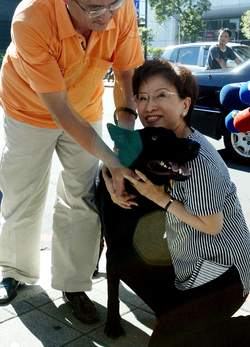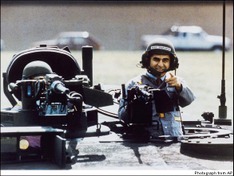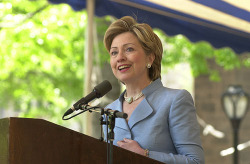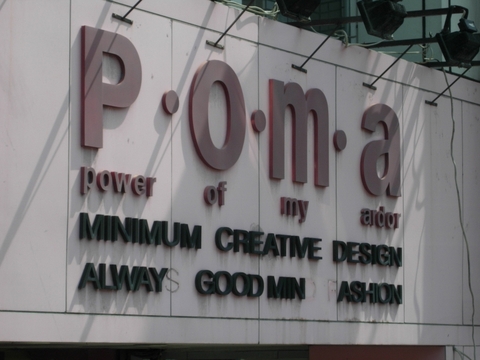Well, there goes THAT promise. The one where I was going to wait a few days before commenting on current events here in Taiwan. Let’s just say the devil made me do it.
Actually, it was the China Post, and its claim yesterday that changing the airport’s name from Chiang Kai-Shek to Taiwan Taoyuan International was "a show of brutal power".
Somebody call the International Criminal Court. President "Snidely Whiplash" Chen just renamed an airport. Why, this is the greatest injustice in the history of the world!
Cost
The China Post‘s first objection was the expense. Twenty one million NT dollars ($640,000 US), give or take. That, and the move did nothing to improve the economy.
Which isn’t bad as arguments go. It’s just that I wonder if someone could produce for me an editorial by that paper denouncing the KMT’s renaming of Taiwanese streets, neighborhoods and mountains back in the late ’40s. A great many of THOSE had Japanese names prior to retrocession, and all of them were given Chinese names afterwards.
In the process, I daresay the KMT spent a whole lot more than $21 million NT. And on top of that, post-war Taiwan was in a far poorer position to afford that kind of money than it is today.
So I ask you: Did any of the KMT’s more expensive name changes do anything to improve Taiwan’s economy back then? If they didn’t, where was the China Post‘s outrage?
Cutting the cord
Even more absurd was this statement:
"The name change of Chiang Kai-shek International Airport is but the latest example of [President] Chen’s…all out efforts to cut the umbilical cord between China and Taiwan."
Maybe there are some linguists out there who could help me out a little here. Isn’t the word "Taoyuan" Chinese, or does it originate from some other language, like Swahili or something? Pray tell, how does an airport name change from Chiang Kai-shek (a Chinese PERSON) to Taiwan Taoyuan (a Chinese PLACE*) move Taiwan any further from China? They’re still both Chinese names, or am I missing something?
It’s a bloody Cultural Revolution, is what it is!**
Next, the China Post makes mountains out of molehills. Renaming airports is just like the Chinese Cultural Revolution, and will end up just as badly. President Chen and Chairman Mao are the same, both denouncing and destroying people.
It seems more than a little ironic that on the same page as this bit of hysterical hyperbole was a column about the REAL Cultural Revolution. You know, the one where 11 year-old kids had to denounce their parents after the Red Guards killed them. Re-education camps, that sort of thing.
Try as I might, I found nothing in that column about the survivors objecting to any airport name changes Mao might have made at the time. Though I’m sure the ones he actually DID make must have increased their sufferings immeasurably.
Actually, when you think about it, Chiang’s wholesale renaming of Taiwanese place names and his White Terror period resembles Mao’s Cultural Revolution far more than anything that Chen’s done. Despite that however, the China Post continues to hail Chiang as a "symbol of the Chinese nation and a towering figure in contemporary Chinese history".
As for Chen? Why, six years in office, and he STILL hasn’t killed or imprisoned anyone yet.
Amateur!
A Rose by any other Name, yada yada
The paper closes with philosophical food for thought, asking us, "What’s in a name? A rose smells as sweet if called by any other name."
Which of course, is a testable claim if ever I saw one. Perhaps instead of "Taiwan Taoyuan", the airport should have been named in honor of another "towering figure" in contemporary Taiwanese and Chinese history:
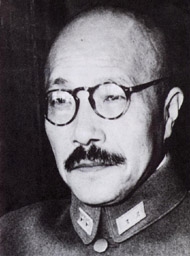
* Please, no objections that Taoyuan is Taiwanese and not Chinese. There’s at least one "Taoyuan" township in northeast China.
** This heading sounds a lot better when read aloud in a Cockney accent.
i-1
